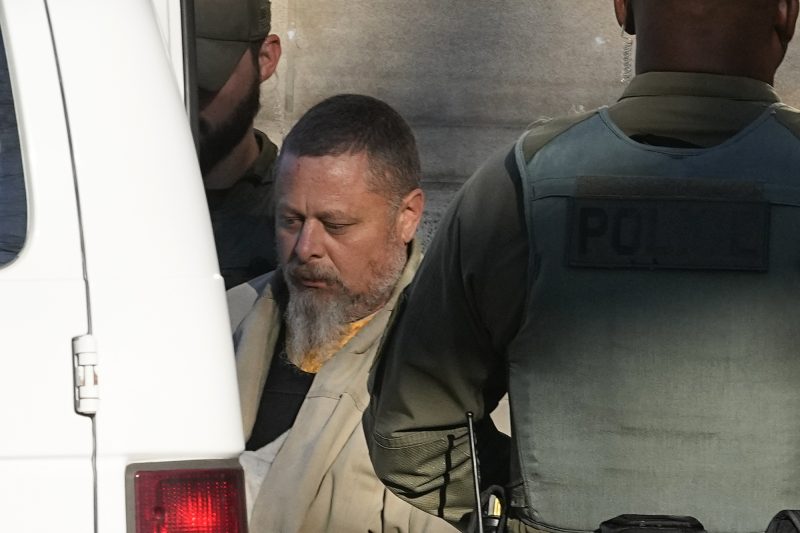Sentencing, potential verdict appeal await Delphi killer

DELPHI, Ind. — At 2:20 p.m. Monday, in a third-floor courtroom inside the Carroll County Courthouse, Richard Allen ceased to be a presumed innocent man as a jury handed down its guilty verdicts four times for the murders of Abby Williams and Libby German near the Monon High Bridge on the outskirts of Delphi almost eight years ago.
Each count, two murder charges and two felony murder charges as a result of the kidnappings that took place just before the killings, carries a sentence of 45-65 years in prison for the 52-year-old Allen.
On Dec. 20, in that same courtroom, Special Judge Fran Gull from Fort Wayne will consider a Pre-Sentence Report, listen to the victim impact statements of the families of the children who were murdered by a resident of their own hometown, give Allen and his family the chance to speak for themselves, and will then pronounce sentence and advise the convicted man of his right to appeal the jury’s decision.
”She will explain the basis for her sentence,” said legal analyst John Tompkins, an Indianapolis defense lawyer. “What she thinks the aggravators and the mitigators are and what she gives the greatest weight to, but, ultimately at the end of the sentencing phase she will explain to him what his appellate rights are, ask him if he wants to seek an appeal and if he wants an attorney appointed, and then go with his wishes and I’m sure that will be to, yes, appeal, and, yes, to have someone appointed.”
Allen’s attorneys Andrew Baldwin and Bradley Rozzi have made a record of filings indicating they expect an appeal that may be based on the judge’s gag order from the start of their representation, her attempt to have them fired and the Court’s denial of motions deemed essential to the defense of their client.
Tompkins said what is not appealable is simple opposition to the jury’s verdict.
”So the things that you appeal are the things that the defense asked to be able to do but weren’t allowed to. Visit the scene, for instance, introduce Odinism, all the things they wanted to do and weren’t allowed, and all the things they objected to the State doing but the State was allowed to do.
”You’re looking at how the case was shaped by the evidence that was allowed in or the evidence that was not allowed in,” said Tompkins, “and you’re trying to say this jury didn’t see the right picture, the correct picture, to come to a correct verdict.”
Even though Judge Gull banned the televising of the trial, despite the presence of cameras wrapped in trash bags in the courtroom, the Media will once again file a motion for live broadcast of the sentencing.
”If this case had been televised I think a lot of what we saw from the jury would have remained the same,” said Tompkins. “They were sequestered. I don’t think we would have seen a whole lot different from the jury.”
Even though nearly all states permit live and video coverage of criminal trials, Tompkins said the most prominent example, the telecast of the O.J. Simpson trial in Los Angeles in 1995, led to some judges to rethink the presence of cameras in the courtroom.
”And you saw the lawyers and the judge in that case acting and behaving differently in front of the camera, making different types of rulings in front of the camera, that’s all been documented from thirty years ago, I hope that people involved in this case are above that and have learned from that.”

Comments are closed.